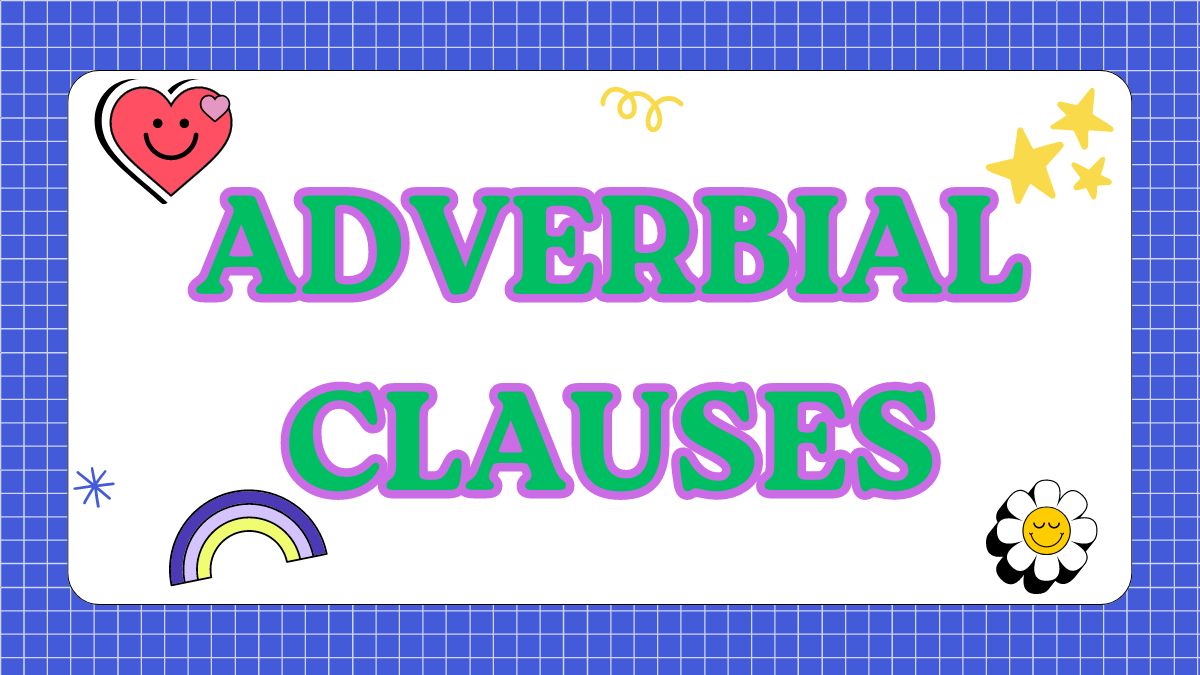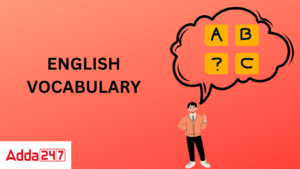Everyone who is fluent in English language even at the intermediate level must have used clauses at one point. Clauses are basically a group of words that includes a subject and a verb, and form a part of a sentence or a sentence. But have you heard about adverbial clauses? An adverbial clause is a special type of clause that provides a unique meaning. In this article, we will learn about the adverbial clauses by going through its definition, examples and use.
Adverbial Clauses
Similar to adverbs, adverb clauses are utilized to explain or give additional details about the verb, adjective, or adverb. An adverb clause, as its name indicates, is a clause that performs the same functions as a regular adverb. An adverb clause can be recognized by inquiring about when, where, how, why, and how frequently.
Adverbial clauses are a sort of dependent clause (i.e., they can’t stand on their own as a sentence). They often answer queries such as “when” (e.g., “before I study”), “where” (e.g., “where she used to live”), “how” (e.g., “as you have always done”), and “why” (e.g., “so that we can go swimming”) regarding the main clause.
Adverbial Clause Meaning
Occasionally, a sentence may convey its message effectively, yet require additional elaboration. When you encounter a sentence like this in your writing, employ an adverb. That is the reason why English possesses them. However, there are occasions when a sentence requires additional elements beyond just an adverb.
More information is required to explain the details of the main clause – its what, where, why, and/or how. In this scenario, you have the option of either adding another sentence or incorporating an adverbial clause. An adverbial clause is a clause that is dependent and modifies a verb, adjective, or adverb within a sentence. Put simply, an adverbial clause functions in the same way as an adverb.
Adverbial Clauses Definition
The definition of the concepts used in English Grammar are done through the highly acclaimed dictionaries that are recognized all over the world. Check the definition of adverbial clause as per the famous English dictionaries below.
The Oxford Dictionary of English Grammar defines an adverb clause as “any *clause (*finite, *non-finite, or *verb-less) functioning as an adverbial.”
According to the Collins Dictionary, an adverb clause is defined as “a subordinate clause that functions as an adverb within a main clause”.
Examples of Adverbial Clauses
If you have not been able to understand the concept of adverbial clause yet, then do not worry, the examples given below will help you understand the logic behind them. The adverbial clauses in the following examples have been highlighted in bold letters.
Because the gym was closed, they exercised at home.
I don’t want to go out until I’ve eaten dinner.
May can run as fast as Tina can.
If Nella doesn’t study, she won’t pass the test.
Ben plays the guitar whenever he has free time.
Due to the reason that adverb clauses are dependent clauses, sometimes also known as subordinate clauses, these clauses must always be connected to a main clause or an independent clause. These clauses are introduced with a subordinating conjunction, such as, “if,” “so that,” “because,” “unless”.
Types of Adverbial Clauses
Adverbial clauses can be categorized into different types based on its word length and functions. Check these types below.
Adverbial Clause Types Based on Length
This is not the formal type given in the English grammar. Students can use this type categorization for better memorization of the concept
Adverbial clauses can occasionally be lengthy, possibly surpassing the length of the main clauses in the sentences. The examples of these types are given below.
- My sister, although she showed more patience than I’ve ever seen her have before, still rushed ahead.
- Because there was ice on the road and I’d already slipped and fallen twice in the last week, I stayed home from school.
While some times the adverbial clause can be quite short. Check the following examples.
- It was dark in the hallway, so Geeta illuminated it after she found a match in her box.
- I took out the trash because it stank.
Types of Adverbial Clause Based on Function
The Adverbial clause can be divided into different types based on the function they perform. Check some of the most common types of adverbial clauses based on their function below.
| Adverbial Clause Type | Adverbial Clause Function | Example |
|---|---|---|
| Manner | Explain how something happens | She ran as fast as she could. |
| Place | Explain where something happens | He bring his bag wherever he go. |
| Purpose | Explain why something happens | Simran bought Rahul this gift because she thought he would like it. |
| Time | Explain when something happens | After they set up the tent, they built a fire. |
| Condition | Introduce possible outcomes | Karan will be here at two o’clock if he gets the next train. |
| Comparison | Compare or contrast | Sam can speak French as well as I can. |
| Concession | Introduce a contrast | Although it’s raining, it’s still warm outside. |
How to Use Adverbial Clauses
As previously mentioned, adverb clauses serve to give details on the timing, location, circumstances, manner, and cause of an action. They also provide the reader with a definition of an adjective and an adverb. Never forget that a subordinating conjunction such as ‘after’, ‘whether’, ‘if’, ‘because’, ‘although’, ‘even though’, etc. is what starts an adverb clause.
Adverbial Clauses Placement Rule
Adverbial clauses are able to appear at the start, in the middle, or at the end of a sentence. Examples will be examined to illustrate how it functions in various sentence positions. The placement depends on on where you want to place emphasis.
Adverbial Clause in the Beginning of a Sentence
These adverbial clauses are also known as fronted adverbial. Adverb clauses that appear at the start of sentences are typically followed by a comma. These clauses are unable to stand alone and are frequently dependent or subordinate clauses. Check the following examples to understand this.
- If you work hard, you will be able to score good grades.
- On Saturday mornings, I go jogging
- In case you like it, let us know.
- Before you make your decision, make sure you think this through.
- Although they drove really fast, they could not reach there in time.
- As soon as you meet him, call me.
Adverbial Clause Use in the Middle of a Sentence
Even when removed from the phrase, adverb clauses that occur in the middle of sentences allow the sentence to make sense. They are enclosed in commas.
- He remembered, after he left the office, that he had not sent the EOD report.
- Kushal, when he is working, does not answer his phone.
- Shilpa, since she was not keeping well, decided not to go to work today and tomorrow.
- My friends, though they told us that they would not come for the party, they somehow made it.
- Cryptocurrency, even though it has been made legal all around the world, is not accepted or considered safe by common people.
- My friend, because he does not like working in the commerce field, started his own company.
Adverbial Clauses Usage in the End of a Sentence
Punctuation is not necessary or demanded when adverb clauses are used at the end of sentences. Check the following examples to understand this point.
- You will be able to go to the theatres to watch movies as long as there is no rain.
- He felt time was very slow because he was sitting idly.
- Patrick kept rambling on and on as if he wanted to prove that he is broke.
- The dog got so comfortable with my brother after he cuddled her for a while.
- Sharon was made to practice the song for the competition until she sang it perfectly.
| Related Post | |
| Verb Forms | Conjunctive Adverbs |
| Modal Verbs | Auxiliary Verbs |











 Vocabulary Words with Meaning and Senten...
Vocabulary Words with Meaning and Senten...
 Past Perfect Tense: Definition, Formula,...
Past Perfect Tense: Definition, Formula,...
 Hyperbole- Explanation, Definition, Exam...
Hyperbole- Explanation, Definition, Exam...














